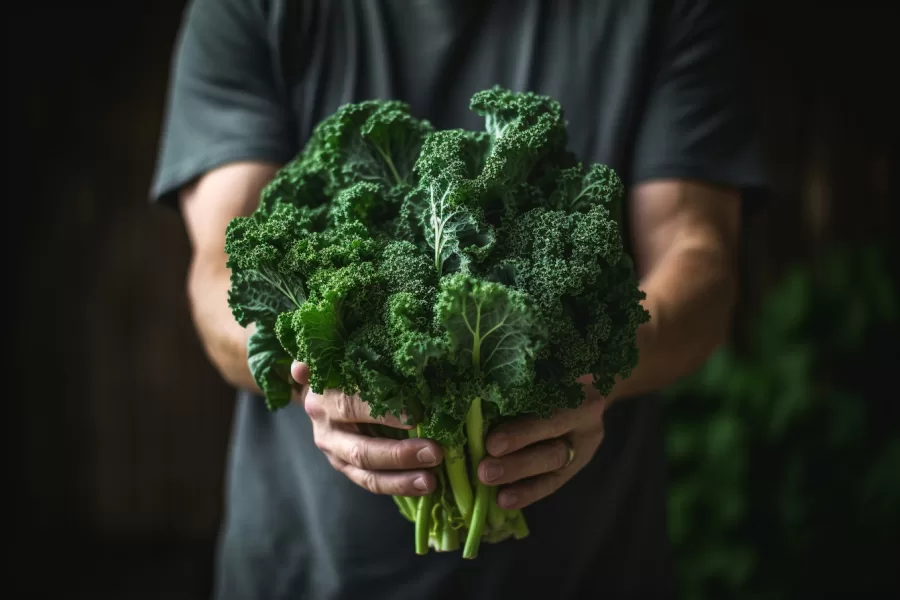Indeed, the common kale has emerged as a remarkable nutritional source that is especially advantageous to the male population. It is crucial to recognize the crucial role diet plays in improving people’s overall health, particularly males, since it greatly affects both their physical and mental well-being. Kale, which is well-known for having a rich nutritional profile, has been included into a variety of dishes, from salads to smoothies, demonstrating both how widely it can be used and the many health advantages it offers.
Understanding Kale’s high nutritional content, which includes a variety of vitamins, minerals, and antioxidants essential for maintaining optimal health, is essential.
Kale: The Nutrition-Dense Leafy Green
Thanks to its broad and varied nutrient profile and unusually low calorie content, kale has earned the nickname “energy plant” and is one of the most nutrient-dense foods on the market. It contains:
- Vitamin A
- Vitamin K
- Vitamin C
- Calcium
- Manganese
- Antioxidants
Consequences for Men’s Health
Cardiovascular Wellness
Kale’s dietary fiber and wealth of antioxidants, which help to decrease cholesterol levels and the risk of heart disease, have a significant positive impact on cardiovascular health.
Reductions in Cancer Risks
By scavenging free radicals, kale’s abundant antioxidant content strengthens the body’s defenses against the development of certain malignancies.
Improvement of Physical Health
Kale is a powerful ally for people seeking increased physical performance and muscle development because of its strong nutritional value, which is essential for optimum physical health.
Bones are made stronger.
The high Vitamin K level of kale is essential for maintaining bone strength and density, which lowers the risk of osteoporosis and fractures.
Comparative nutritional evaluation
In comparison to other leafy greens, kale has a higher nutritional content. It is also recommended to be used together with:
- Spinach
- Swiss Chard
- Romaine Lettuce
- Arugula
Evaluation of Kale in Diet: Advantages and Warnings
While kale is a remarkable source of nutrients, it’s equally crucial to keep an eye on your consumption.
Pros:
High nutritional value, low calorie count, and antioxidant content.
Cons:
Potential for bloating; possible drug interactions.
Recommendations for Including Kale in Your Diet
Kale may be easily used into a variety of culinary recipes to guarantee a tasty and nourishing consumption.
- Kale Salads
- Kale Smoothies
- Sautéed Kale
- Kale Chips
Clinical Verdict is in bold type.
Clinical studies have shown that regular, balanced intake of kale significantly improves men’s overall health, from cardiovascular advantages to improved athletic capabilities.
Conclusion
Numerous health benefits, particularly for males, might result from include kale in one’s diet. Its extraordinary nutritional richness qualifies it as a necessary element for sustaining a balanced and healthy lifestyle. Kale stands out as a nutritious partner whether the objective is cardiovascular fortification, bone building, or increase of athletic capacities.
FAQs
Is it advisable to eat kale raw?
Yes, you can add raw kale to smoothies and salads.
Are all age groups nutritionally benefited by kale?
Yes, its nutritional composition is beneficial for people of all ages.
For best results, how often should kale be consumed?
Clinically, a balanced frequency of a few times per week is advised.
Can one eat just kale as their only vegetable?
Despite having a high nutritional value, a varied vegetable diet is essential for a well-rounded diet.
Does heating kale reduce its nutritious content?
While some nutrients may be lost during cooking, many are retained and some even become more accessible.
